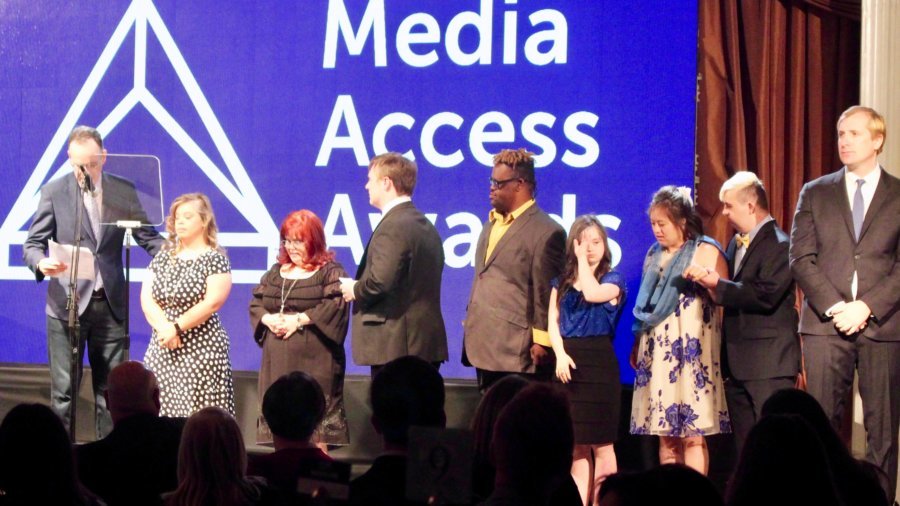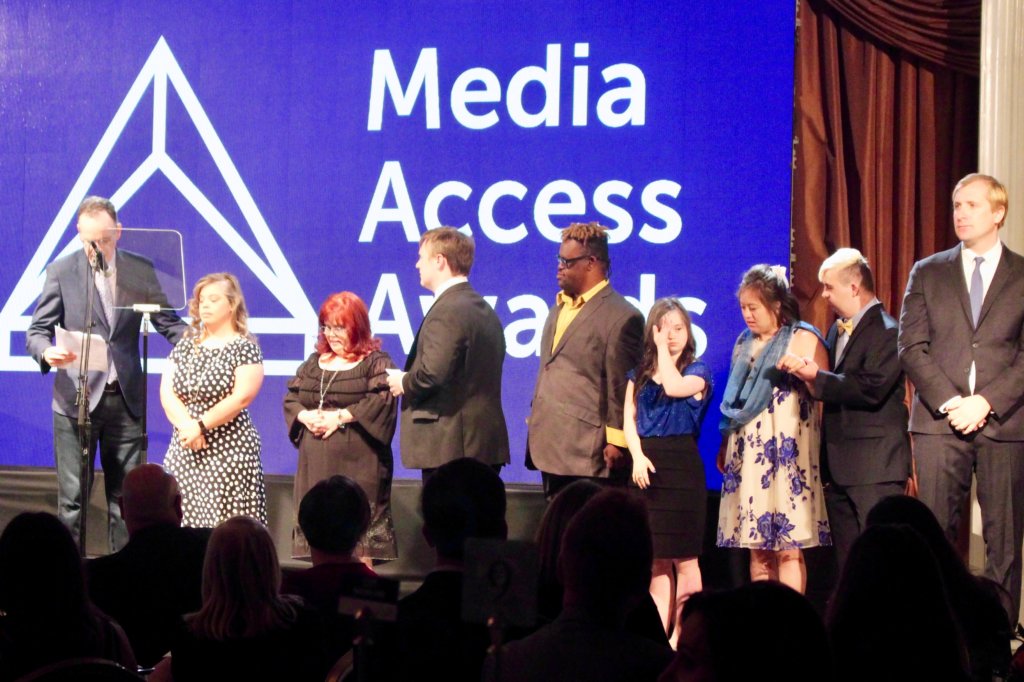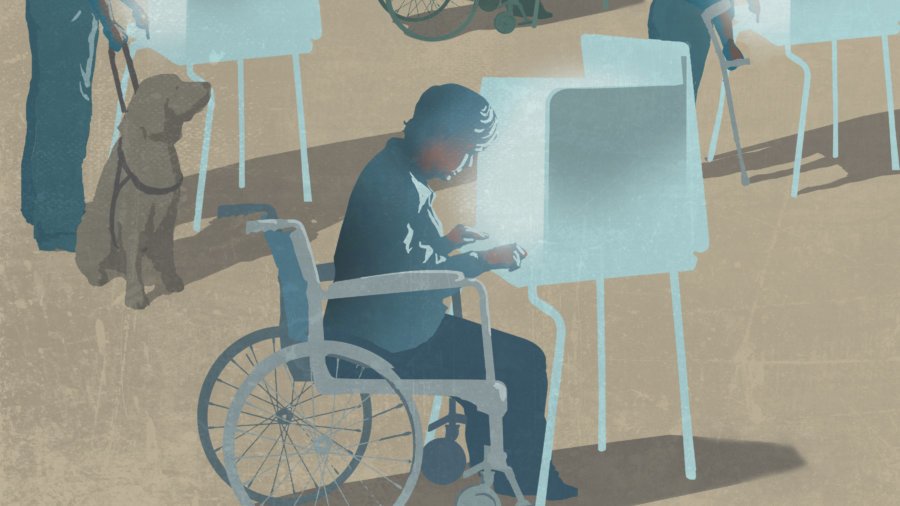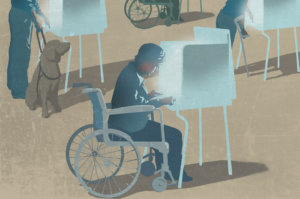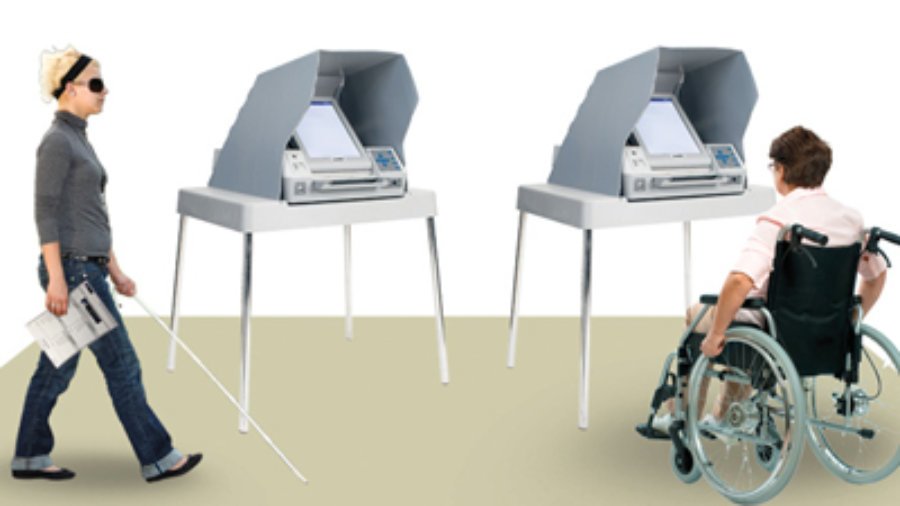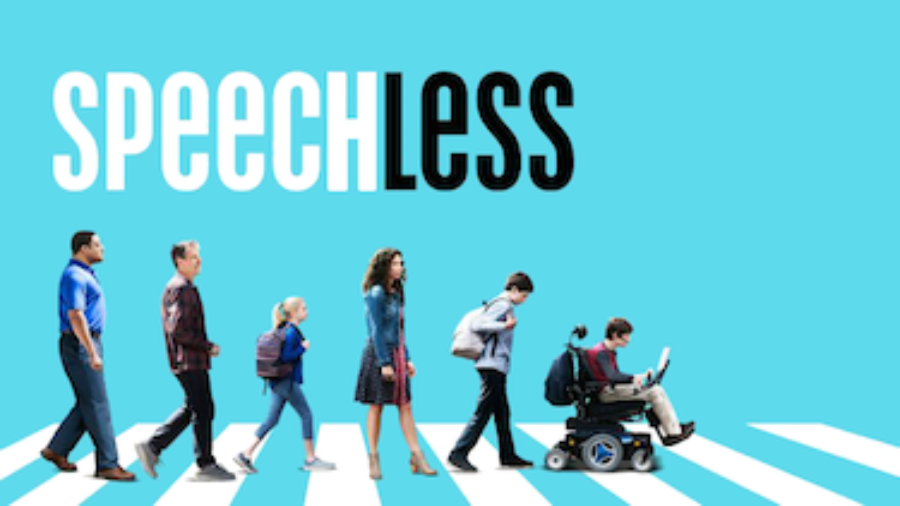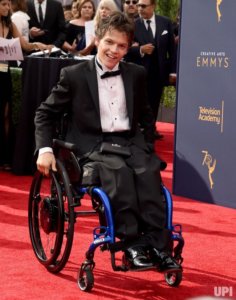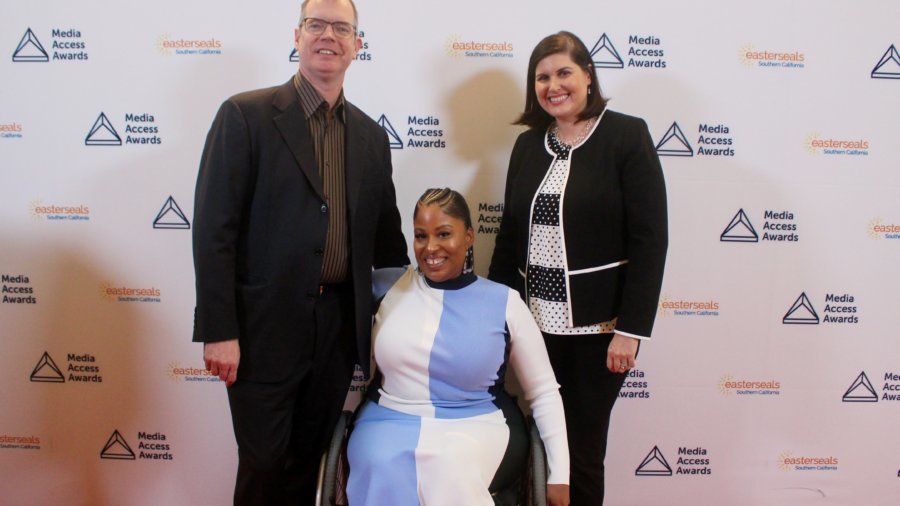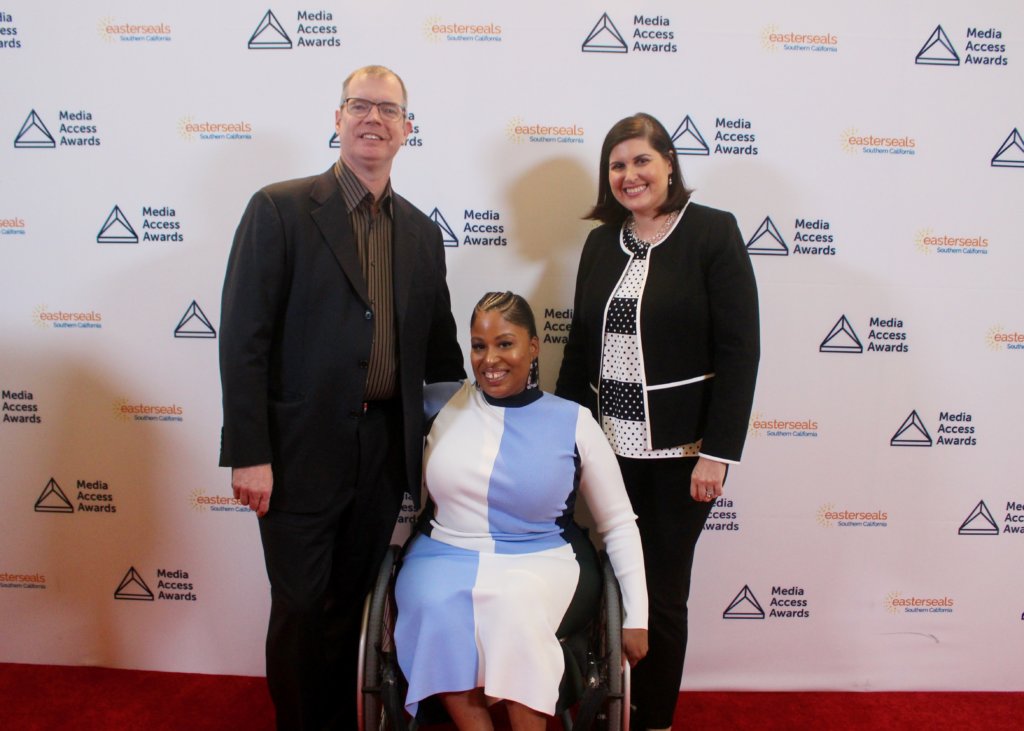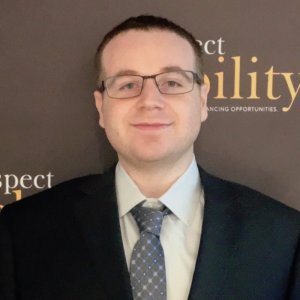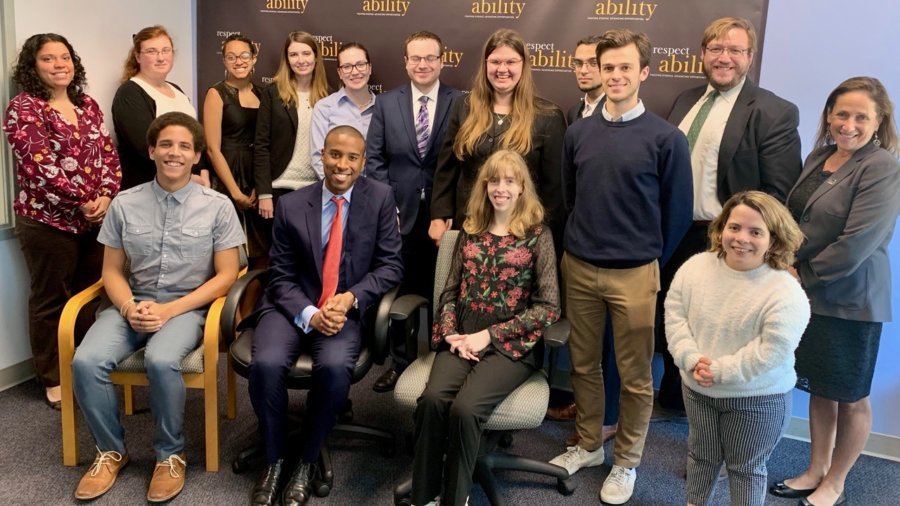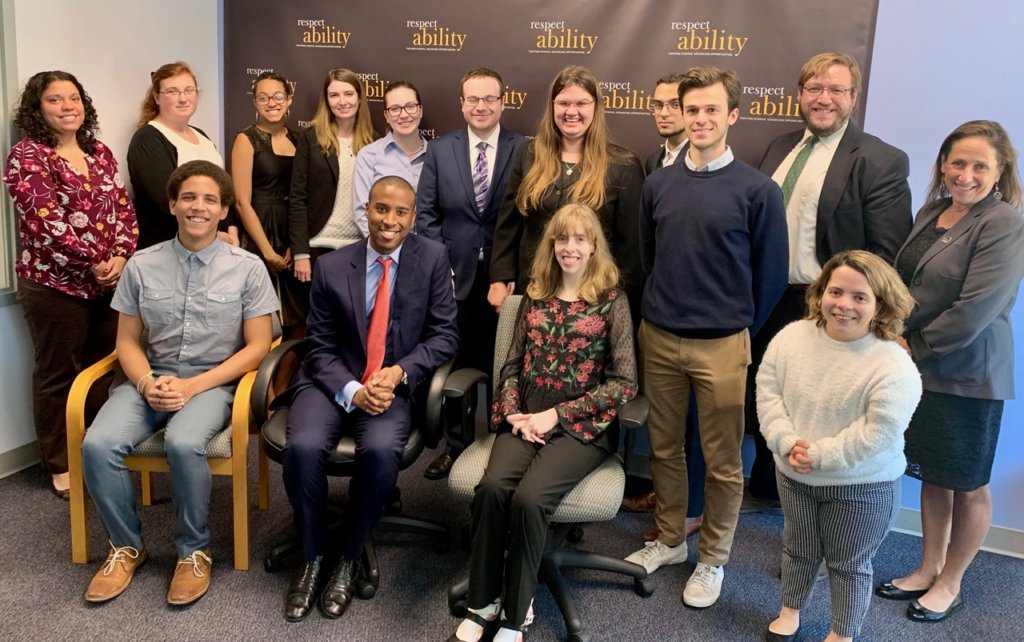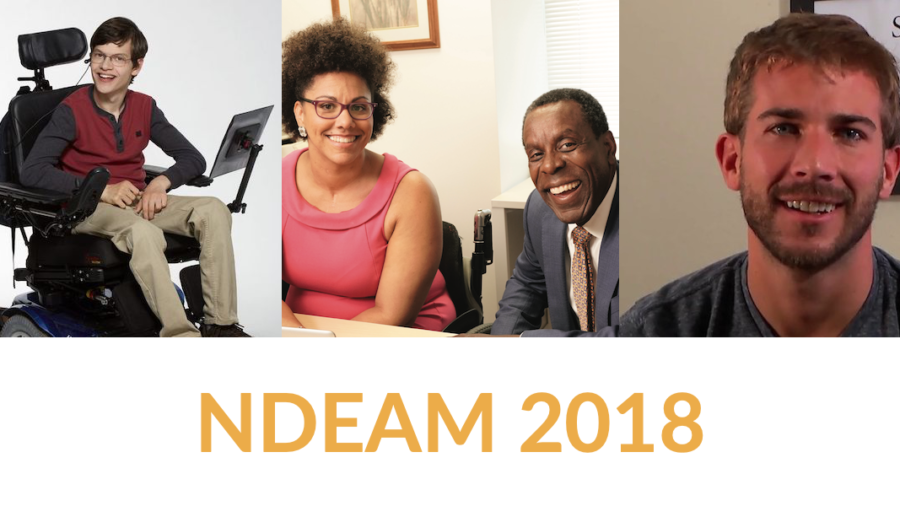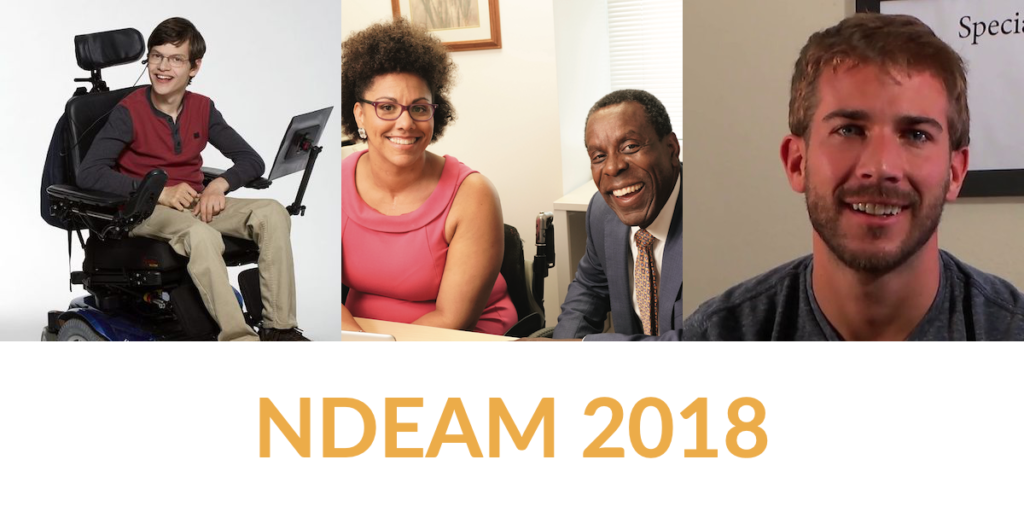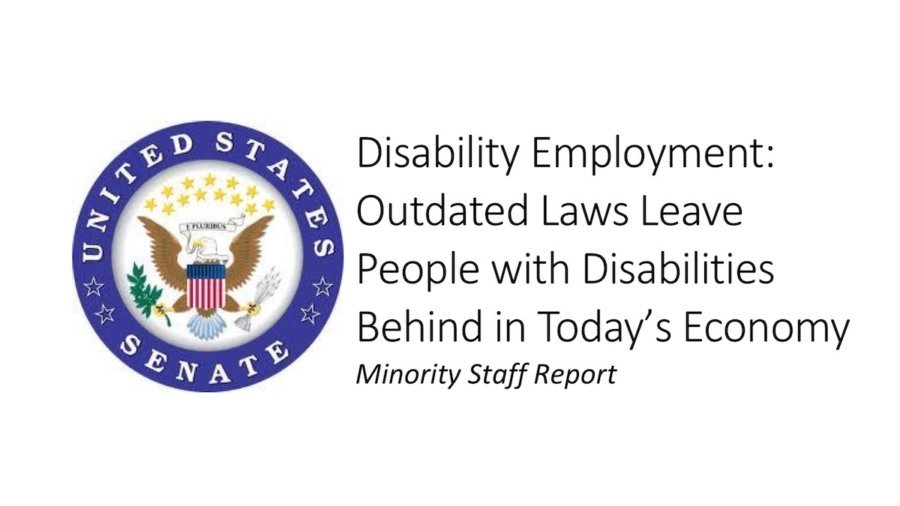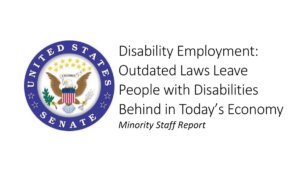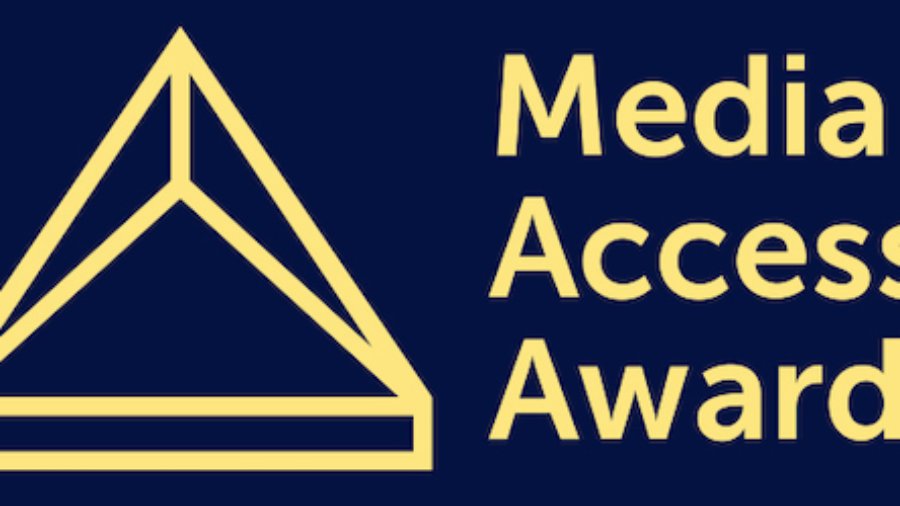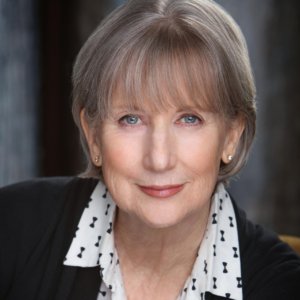Present 2018 Casting Society of America Award to Sasha Alpert and Megan Sleeper
Beverly Hills, California, Nov. 8— The cast of Born This Way and executive producer Jonathan Murray made an appearance at the Media Access Awards to present casting directors Sasha Alpert and Megan Sleeper with the Casting Society of America Award. The Media Access Awards, which recently has formed a partnership with Easterseals Southern California, honors accurate inclusions of disability in film, television and new media.
Alpert and Sleeper cast Born This Way, for which they won the 2017 Outstanding Casting for a Realty Program Emmy Award. Born This Way is an unscripted series on A&E that follows the lives of seven young adults with Down syndrome as they navigate friendships, romantic relationships and work. The Casting Society of America Award, which Alpert and Sleeper were awarded, honors casting directors who actively participated in the mission of Media Access, according to the Casting Society of America.
Murray and the cast of Born This Way presented Alpert and Sleeper with the award. Steven Clark, Cristina Sanz and Rachel Osterbach delivered lines before presenting the award. [continue reading…]


